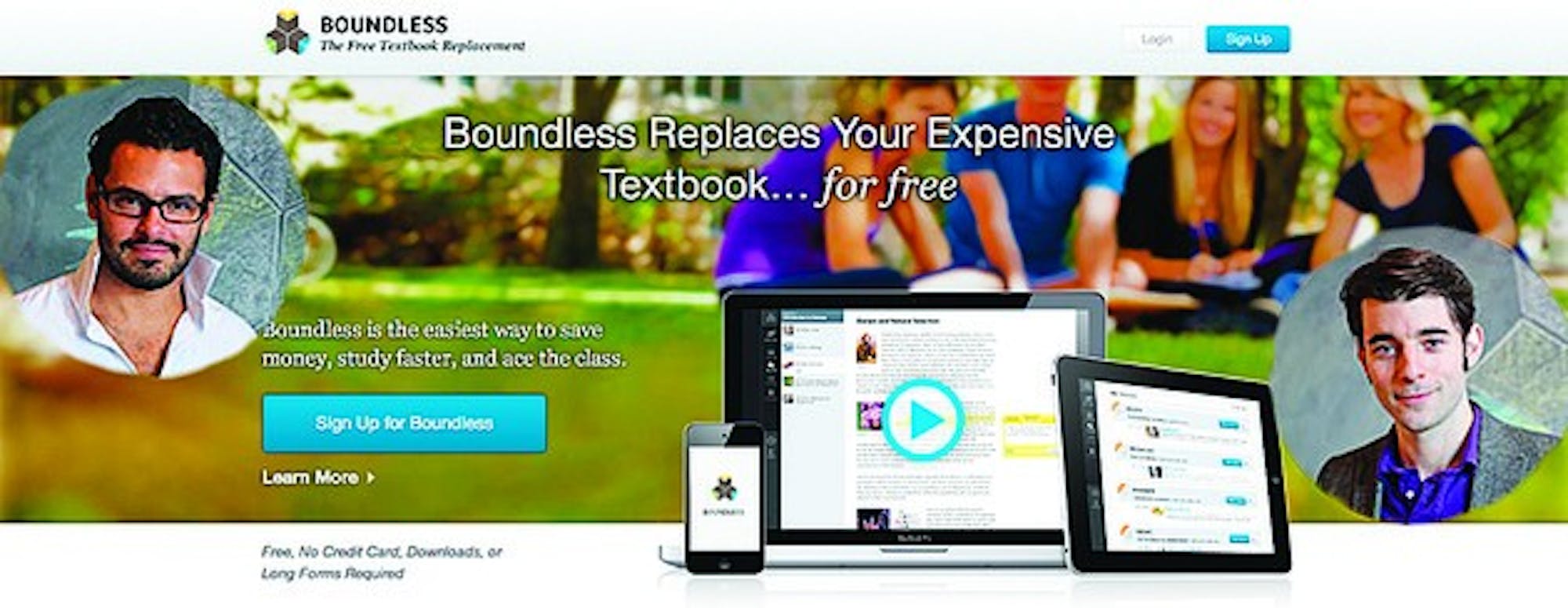Boundless does not provide actual e-textbooks, but rather uses a mix of government and nonprofit open-licensed content, according to Diaz, who started working on the idea two and a half years ago with co-founder Aaron White.
Diaz said that his goal is not only to give students a less costly way to learn, but also to "create an education system that lets every individual perform and learn at their potential and speed."
Boundless currently features review videos, flashcards and note-taking tools in addition to textbook information. In the future, Diaz hopes to add tools like e-tutoring, for which users would pay to make the company's business model sustainable. The company's founders are not currently worried about finding ways to generate profits, Diaz said.
In March, Boundless faced a setback when three textbook publishers filed a lawsuit against the company, according to Diaz. Boundless has since filed to dismiss two of the lawsuit's claims concerning unfair competition and false advertising, he said.
"The primary purpose was to use the legal system to stifle innovation by claiming copyright ownership on what is fundamentally free and open," he said, noting that he does not think that the lawsuit will hamper the company's progress. "We're confident in our mission and in the actual case because corporate law doesn't protect facts and ideas."
In a national private beta test involving 1,000 colleges, students rated their experience with the website 50 percent higher than that with physical textbooks, according to Techcrunch.com. The year-long test occurred while the website was still in its trial stages.
After browsing the website, however, Emily Bao '16 said she would not opt to replace her textbooks with the Boundless web content.
"I've never been a fan of using my computer to read textbooks simply because I get distracted way more easily," she said.
There is also no equivalent material for her international trade class, Bao said.
Matt Krantz '16 said he also has apprehensions about replacing his textbooks because he fears that many of his professors' test questions come directly from required textbooks. In his case, Boundless would seem useful as a supplemental study guide to class material, he said.
Diaz created Boundless after considering how to make open educational content more useful for college students, he said. Boundless reflects his goal of offering students a more flexible approach to education.
Before working on Boundless, Diaz helped to co-found YouCastr, an online video platform that enables high schools to broadcast live sports games and other events to parents and the community, according to Diaz. He is also the president of the Dartmouth Boston Entrepreneur Network.
Diaz's time at Dartmouth helped prepare him to run his own company, he said. After receiving an undergraduate degree from the College, Diaz pursued the College's Master of Engineering Management Program, which offers a hybrid degree that consists of courses at both Tuck School of Business and the Thayer School.
The hybrid degree program was initially conceived to prepare engineers with the tools necessary "to build an effective business plan leading to a startup," according to engineering professor John Collier.
Diaz polished his skills as a leader while pursuing his graduate degree at Thayer, he said. Diaz was team captain of the Dartmouth Formula Racing Team, which consists of roughly 40 students who work together to build a formula race car that they race against other schools.
Research engineer Douglas Fraser, an advisor to the Formula Racing Team, said he remembers Diaz as a standout team captain who wasn't afraid to be independent.
"[Diaz] led the Dartmouth Formula Racing Team in large part due to his ability to clearly communicate his goals and objectives in such a way that the team understood them and joined him in the effort," Collier said.




